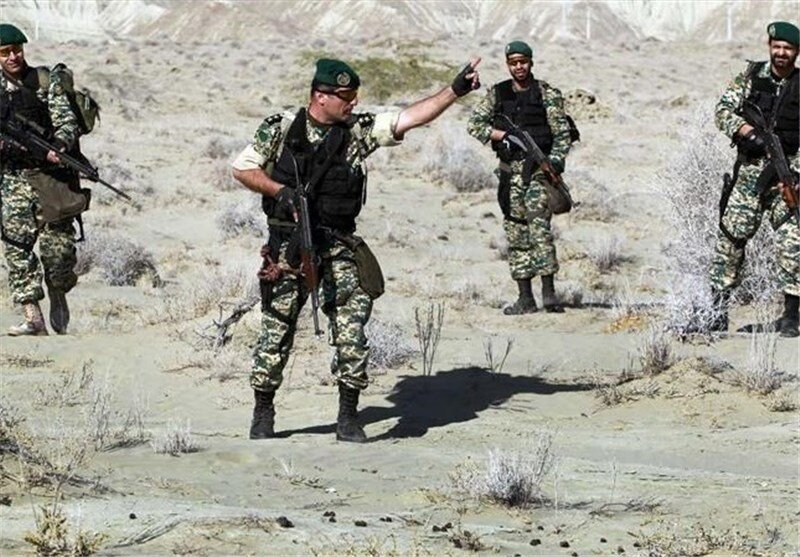No indications Iran changing regional strategy: analysis

Some nine years after Iran’s powerful Islamic Revolutionary Guards Corps (IRGC) deployed military advisers and fighters to Syria to prop up the government of President Bashar al-Assad, Israeli and U.S. officials have said Tehran is reducing its presence in Syria.
Analysts told RFE/RL that amid the reports of a movement of forces, there are no indications Iran is changing its regional strategy, which is driven by political and security interests.
Israeli military officials said recently that Tehran has pulled some of its forces from Syria and evacuated military bases near the border with Israel.
“We do see some withdrawal of Iranian-commanded forces. Some of that is tactical because they are not fighting right now,” said U.S. special envoy for Syria James Jeffrey at a May 12 panel hosted by the Washington-based Hudson Institute.
But analysts say there are no signs Iran is quitting Syria, the only Arab country that sided with the Islamic republic during the 1980-1988 war with Iraq.
Raz Zimmt, an Iran analyst at the Institute for National Security Studies (INSS) in Tel Aviv, told RFE/RL that comments by Israeli officials about an Iranian withdrawal from Syria “are very much exaggerated, partly due to political considerations.”
“In fact, the number of cargo flights between Iran and Syria seem to [have] increased since April 2020,” he said. “It is, therefore, a tactical withdrawal or redeployment at most, rather than an Iranian withdrawal from Syria.”
Zimmt said that since the beginning of its involvement in Syria, the IRGC has adapted its modus operandi to the circumstances at hand.
“There is no doubt that in the last two years Iran has been reducing the IRGC presence in Syria, which is much less required than before,” he added.
Zimmt said that while the number of IRGC forces has decreased from a few thousand to a few hundred, Tehran has continued to recruit Syrians to hold the Iranian forces’ places.
He said U.S. sanctions have to some extent restricted Tehran’s ability to assist its allies in the region. But that does not mean a change of course.
“Our experience with Iran has shown that economic considerations have never been the main engine in its regional policy,” he said. “Iran has continued to assist its allies… in the region even under severe economic constraints, because it considers its regional involvement and influence a vital national interest.”
Ali Alfoneh, a senior fellow at the Arab (Persian) Gulf States Institute in Washington who has closely monitored IRGC activity in Syria, said he is not aware of credible reports about an Iranian military withdrawal from Syria.
“What I see is troop movements within Syria: from Deir al-Zor to a larger headquarters in Palmyra, along with some other tactical moves in the wake of the latest round of Israeli air strikes,” he said.
Speaking earlier this week, former Israeli military intelligence chief Amos Yadlin questioned reports about a full Iranian pullout from Syria.
“The Iranians are not leaving — I am not buying this argument,” Yadlin was quoted by The Jerusalem Post as saying.
Haaretz strategic blogger Shemuel Meir, a former analyst with the Israel Defense Forces (IDF) and a Tel Aviv University researcher, says Iran could be adapting its policies to a changing reality on the ground.
Meir added Iran will not be “relinquishing Lebanon, which is the core of Iran’s interests.”

Leave a Comment